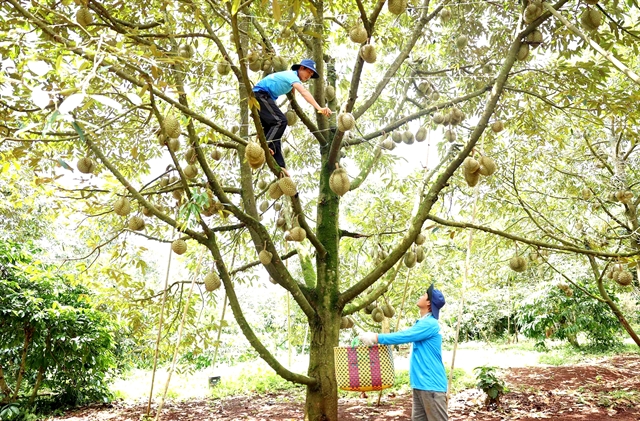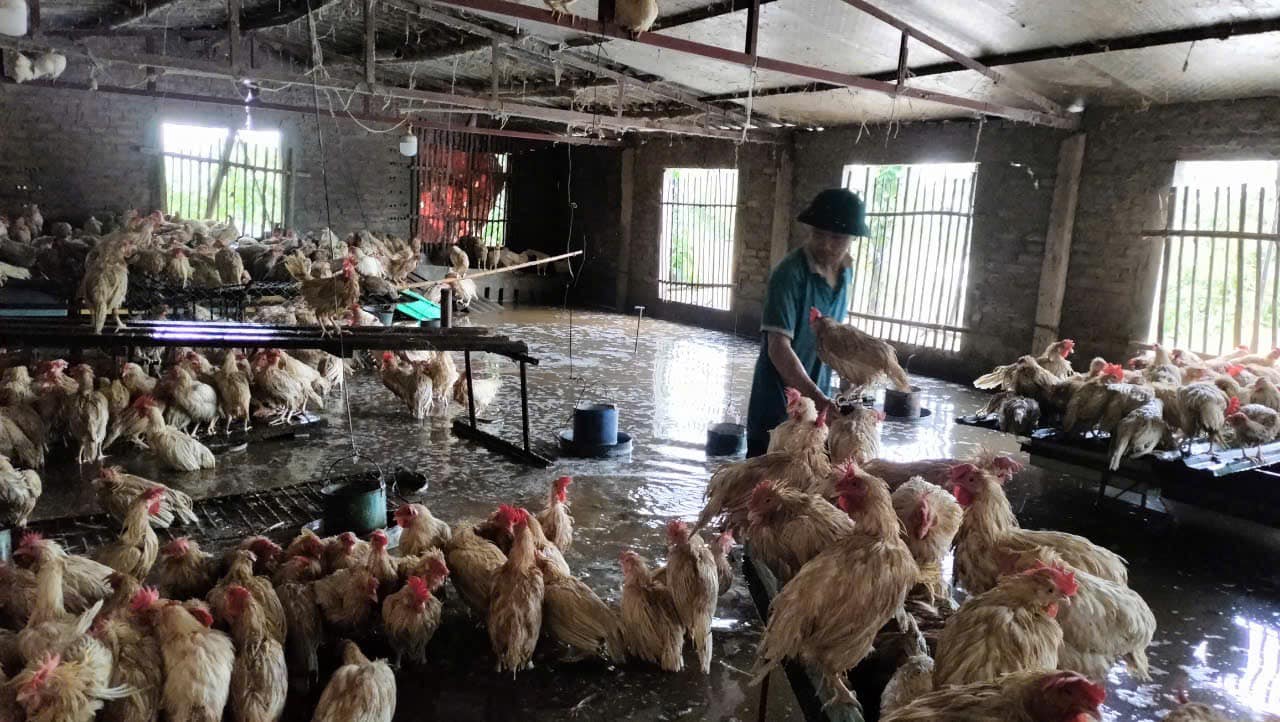▌Câu trả lời hay nhất
TheĐắkLắbongdainfo tv quality, yields and prices of durian have fallen in Đắk Lắk this year, largely due to challenging weather conditions and farmers’ lack of experience.
 |
| Durian farmers in Đắk Lắk Province are facing problems with bad weathers, which impacted the quality of the fruits. — VNA/VNS Photo Hoài Thu |
ĐẮK LẮK — The quality, yields and prices of durian have fallen in Đắk Lắk this year, largely due to unfavourable weather conditions and farmers’ lack of experience.
The Central Highlands province has nearly 32,800ha under durian, with more than 15,850ha ready for harvest – yield expected to reach around 300,000 tonnes.
But last month, at the start of the durian harvest season, farmers faced challenges due to prolonged heat and large temperature swings, which have stressed the trees and caused some fruits to drop to the ground.
Unrelenting rains have significantly impacted the quality of the durian fruit, resulting in lower prices for farmers compared to last year.
Trần Văn Thắng, director of the Krông Pắc Green Agricultural Cooperative, said last year it paid VNĐ70,000-80,000 per kilogram, but this year, due to the fruit’s lower quality, it is paying farmers less than VNĐ60,000.
Phạm Văn Lượng, director of the Dũng Thái Sơn Import-Export Company, said there has been a decline in export-grade durian this year because, in addition to the bad weather, farmers also used too much fertilisers and pesticides which affected the flesh.
Many farmers care more about quantity than quality, but with the huge Chinese market becoming stricter with its quality requirements, farmers need to focus on the latter, he warned.
Professor Trần Văn Hậu of Cần Thơ University said durian farming is a relatively new field for Đắk Lắk Province, and few farmers there are experienced in growing the fruit and dealing with unpredictable weather.
Durian production in Đắk Lắk is also plagued by ineffective pest and disease management, small and scattered farming areas and low adherence to export standards.
Most exporters target the competitive Chinese market, he said.
Thailand carefully manages durian quality, even jailing those who produce poor durians, and Việt Nam too must develop clear farming practices and quality standards, he said.
Farmers need to shift their focus from merely increasing yields and planting areas to product quality, he said.
Besides, industry stakeholders must work together to improve product quality and sustain export markets, he added.
Dr Phan Việt Hà, deputy director of the Central Highlands Agricultural and Forestry Science Institute, said farmers should start by creating durian orchards with windbreaks and effective drainage systems to cope with the impacts of climate change.
They should also clearly define their production goals and study the taste of their buyers to choose the right varieties of the fruit, he said.
The province has called on the Ministry of Agriculture and Rural Development to create national standards for durian farming and harvesting.
Nguyễn Văn Hà, deputy director of the Đắk Lắk Department of Agriculture and Rural Development, said the key focus now for the local durian industry is quality and safety.
The province is working on a durian development plan until 2030, which would include creating specialised farming zones and encouraging farmers, cooperatives and businesses to work together to ensure quality and meet export requirements, he added. — VNS











